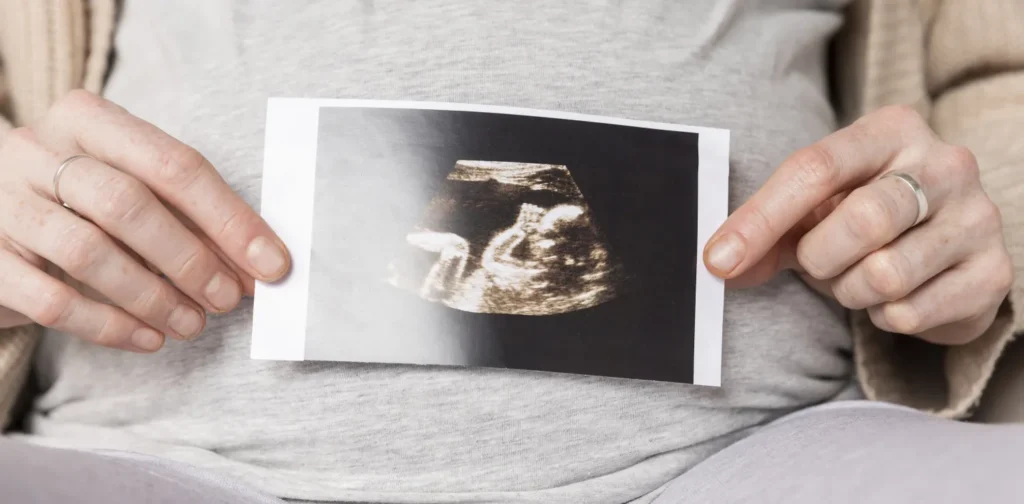Indonesia Passed Regulation Allowing Abortion for Rape Victims

Photo: Freepik.
While pregnancy can be something to anticipate for most people, it can be dreadful for women suffering from sexual abuse. Pregnancy becomes a heavy burden for sexual abuse survivors, who must give birth to unplanned kids conceived from violent acts. In this light, the Indonesian government has released a Government Regulation which gives a ‘green light’ for abortion for rape victims and cases of medical emergencies.
A Precarious Situation
The number of sexual violence and rape cases in Indonesia remains high. In 2023, the National Commission on Violence Against Women recorded 2,078 cases of sexual violence, of which 143 of them were rape cases. Meanwhile, the Ministry of Social Affairs recorded 780 cases of pregnancy due to sexual violence.
Rape and sexual abuse survivors tend to find themselves in precarious situations. Aside from suffering from societal stigma, the survivors must also face various restrictions that prevent them from having abortions. Complicated procedures to obtain permission and strict abortion regulations are significant barriers for the survivors that can be very detrimental to their wellbeing.
Worryingly, there are also cases where rape victims are criminalized for having abortions. In 2018, a girl, who was a rape victim, was sentenced to six months of prison for abortion in Jambi. Another rape victim in Banyumas, Central Java, was asked to withdraw from school due to her pregnancy.
Furthermore, social pressures stemming from cultural norms often prohibit rape survivors from having abortions in many parts of Indonesia. In the country’s remote areas, abortions are often impossible due to limited health facilities.
Abortion for Rape Victims
On July 30, 2024, President Joko Widodo signed Government Regulation Number 28 of 2024 on the Implementation of Law Number 17 of 2023 on Health. This regulation reinforces the same regulation on abortion as stated in the Government Regulations on Reproductive Health.
One notable point listed in the regulation is the exception to abortion restriction for victims of rape and sexual violence that result in pregnancy and for pregnant women with indications of medical emergencies. The regulation states that abortion for rape victims can be carried out with the victims’ consent, but medical emergency cases still require the husband’s consent.
To encourage safe procedures, Article 119 states that abortions can only be conducted in advanced healthcare facilities that meet the standards set by the Minister and can only be carried out by competent and authorized medical personnel and health workers. Additionally, abortion services must also involve assistance and counseling before and after the procedure.
Unfortunately, many still consider this regulation complicated due to the requirements needed to obtain abortion permission. Rape victims who wish to conduct an abortion must obtain a statement from the police investigators regarding the rape case and a doctor’s certificate on the gestational age. The length it would take to get both documents can potentially eliminate the victims’ chances for abortions, as it can potentially exceed the established period of 14 weeks of pregnancy.
Addressing Challenges
Although this regulation sets a critical point for Indonesia, legal support regarding women’s reproductive health and gender-based violence still has a long way to go. Societally, many still object against abortions for rape survivors due to many reasons, including the fetus’s right to life. What remains missing is a survivor-centered approach to addressing this issue. Beyond law and policy, rape and sexual violence survivors also need meaningful support from their community.
Therefore, a clearer and more comprehensive mechanism is crucial to find a resolution that places survivors at the center. Improving the coverage and quality of gender education for all is an important step to address this. This must also go hand-in-hand with efforts to eradicate the stigma surrounding sexual violence cases and the choices made by survivors to have abortions. Addressing this complex issue requires a multi-sectoral approach and multi-stakeholder participation to create a safer world for women and girls everywhere.
Editor: Nazalea Kusuma
Translator: Kresentia Madina
The original version of this article is published in Indonesian at Green Network Asia – Indonesia.

Co-create positive impact for people and the planet.
Amidst today’s increasingly complex global challenges, equipping yourself, team, and communities with interdisciplinary and cross-sectoral insights on sustainability-related issues and sustainable development is no longer optional — it is a strategic necessity to stay ahead and stay relevant.

Abul Muamar
Amar is the Manager of Indonesian Digital Publications at Green Network Asia. He holds a Master’s degree in Philosophy from Universitas Gadjah Mada and a Bachelor’s degree in Communication Studies from Universitas Sumatera Utara. He has over ten years of professional experience in journalism as a reporter and editor for several national-level media companies in Indonesia. He is also a writer, editor, and translator with a particular interest in socio-economic and environmental issues.


 Africa’s Solar Energy Surge: Why 2025 Was a Breakthrough Year
Africa’s Solar Energy Surge: Why 2025 Was a Breakthrough Year  Agrihoods: Integrating Farms and Urban Neighborhoods into Sustainable Communities
Agrihoods: Integrating Farms and Urban Neighborhoods into Sustainable Communities  Women in Waste Management: Asia’s Circularity Runs on Women. Its Policies Still Don’t
Women in Waste Management: Asia’s Circularity Runs on Women. Its Policies Still Don’t  Embracing the Business Value of Sustainability
Embracing the Business Value of Sustainability  American Farmers Call for Government Support Amidst PFAS Contamination
American Farmers Call for Government Support Amidst PFAS Contamination  Asia Pacific’s SDG Progress Faces Major Setbacks
Asia Pacific’s SDG Progress Faces Major Setbacks